Carl E. Olson's Blog, page 271
October 27, 2011
"No Small Matter": Fr. Schall on what the Pope said in Germany
"No Small Matter" | On What the Pope Said in Germany | Fr. James V. Schall, S.J. | Ignatius Insight | October 26, 2011
"No, evil is no small matter. Were we truly to place God at the centre of our lives, it could not be so powerful."
— Pope Benedict XVI, Former Augustinian Convent, Erfurt, Germany, September 23, 2011 (L'Osservatore Romano, English, September 28, 2011
I.
The homilies and lectures that the Holy Father gave in his third visit to Germany in September are, as we might expect, outstanding. In his recent provocative book, It's Not the End of the World, It's Just the End of You: The Great Extinction of the Nations, David Goldman wrote that "Benedict XVI ranks by my reckoning as the best mind on the planet." Surely this "reckoning" is right, Who is to compete with him? But what is especially remarkable about Benedict XVI is the ease and care with which he can illuminate overall things in brief discourses.
As an example, I want to comment on the address the Holy Father gave to representatives of the Evangelical Church of Germany. He was in the Augustinian Convent in Erfurt, where Martin Luther was ordained and where he lived from 1505-1511. Probably better than any of his predecessors, this Pope knows Luther. In general, the Pope stressed what Catholics and Lutherans have in common, not what divided them, the cause of so much strife. We are at a stage in history where we can look at the past much more calmly, but only if we will.
One of Luther's most powerful concerns, Benedict recalls, is this: "How do I receive the grace of God?" That is a very Augustinian question. Luther was an Augustinian monk; the Pope cites Augustine all the time. Benedict points out, "For Luther theology was no mere academic pursuit, but the struggle for oneself, which in turn was a struggle for and with God." Since God exists and since He is interested in each of us, we cannot avoid the question of how we receive Him, of what happens when we know Him. We also struggle with ourselves, for we are tempted not to know Him.
Luther's question, the one that drove him, is also the question that Benedict tells us "never ceases to make a deep impression on me." The Pope then wonders who is concerned with this question today. Are the local Germans in Erfurt, in the Federal Republic, concerned? Very few. Why? "Most even today, even Christians, set out from the presupposition that God is not fundamentally interested in our sins and virtues." This same presupposition could not be said of Luther. But is it a valid presupposition? Do we leave it unexamined?
Modern people rationalize their position. God knows, they assure us, that "we are all mere flesh." Hence we are to expect sins and disorders. Some people still believe in the afterlife and divine judgment, but, like the people in Plato's dialogues, they think God does not care about them or they believe that He can be bought off. "For all practical purposes, God is bound to be magnanimous." He will overlook "our small failings." The questions of grace and repentance "no longer trouble us."
Though Benedict does not cite it, this approach sounds like the famous phrase attributed to Luther, pecca fortiter. Luther, of course, added: "Sin forcefully, but more strongly believe in the faith and joy of Christ." It is something like Rabelais's witty parody of Augustine's phrase , "Love God and do what you will." On his dissolute monastery, Rabelais simply put on the Gates, also parodying Dante: "Do what you will." And this view is pretty much where we are, as the Pope indicates.
To this easy assumption that all will be well no matter what we do, we can expect the author of Spe Salvi to have something to say. Does nothing "trouble us?" "Are they really so small, our failings?" I have often asked classes, when reading of Augustine, whether Augustine—if he came back to life today and read say The New York Times, Washington Post, and Le Monde—whether anything in its content and headlines would surprise him?" He would read of wars, rumors of war, corruption, drugs, broken families and societies, greed, lust, anger, and about any of the other sins our kind have embraced. In other words, he would not be surprised at all.
Somehow, we cannot see ourselves; we think that what we do is of little import, even our worst sins. The whole doctrine of hell is designed really to tell us that what we do, every day, is of enormous importance because our acts, both little ones and great ones, do affect people.
Benedict is not so sure that what we do makes no difference. "Is not the world laid waste through the corruption of the great, but also of the small who think only of their own advantage?" he asks. Often we think that only the "great" commit crimes. Often they commit the greatest ones, but the ordinary and the small also sin in their own sphere. This attention to every life is very Augustinian. "Is not (the world) laid waste through the power of drugs, which thrives on the one hand on greed and avarice, and oh the other hand, on craving for pleasure of those who become addicted?"
Of course, if we think human beings are unimportant and their lives meaningless, such things will not much matter to us. But if each person is made in the image and likeness of God, if we think of human dignity and honor, we cannot just shrug our shoulders at these things as if they were really insignificant or as if God does not notice them.
"Could hunger and poverty so devastate parts of the world if love for God and godly love of neighbor—of his creatures, of men and women—were more alive in us?" the Pope asks. He tells us that he could list many more obvious disorders. He concludes: "No, evil is no small matter." Such evils arise from our thoughts and actions, for not placing God at the "center" of our actions.
II.
So Luther's "burning" question does stand before us. "How do I stand before God?" This is not an "academic" question. It is something we can still learn from Luther. A second large consideration we can learn from Luther concerns God, the creator of heaven and earth. What about this God? Is he merely an "It?" No, He has a "face" and He has "spoken" to us. "He became one of us in the man Jesus Christ—who is both true God and true man."
Luther's thinking had to do with the promotion of God's "cause." We read Scripture with this question in mind. The book is not just a piece of intellectual baggage. Christ must be at the heart of our lives. "But is any of this important today?" the Pope fancies someone asking him. The first thing we must remember is how much we have in common. And these questions of sin and grace we do have in common. "It was the error of the Reformation that for the most part we could only see what divided us."
Benedict is quite conscious that both Catholics and Lutherans can in practice lose or blur what they have in common if they choose. We need to look today at the "geography of Christianity." Christianity seems to be spreading "with overpowering missionary dynamism, sometimes in frightening ways." These are a new kind of evangelical Christians in the light of whom "mainstream Christian denominations often seem at a loss."
If we examine these vigorous movements, as we should, they often seem to lack stable institutional structure and dogma. The Pope finds that bishops from all over the world tell him about these movements. These movements bring up again "the question about what has enduing validity and what can or must be changed—the question of our fundamental faith choice." The Church, after all, is bound by its revelational structure, both of form and belief. What of the common core of faith do the evangelicals leave out?
What also needs to be faced is the growing secularization of society. It is in this atmosphere that many Christians must live. How are they to survive and flourish in such a context? "Are we to yield to the pressure of secularization, and become modern by watering down the faith?" Not a few Christians would like to do this. Faith, however, has to be "thought afresh"—and "lived." One thing that is striking about both Benedict and John Paul II is their emphasis on the example of saints and martyrs of our own time. People can and do live as Christians. We often do not notice them.
"It is not strategy that saves us and saves Christianity, but faith." The Pope recalls that it was the "martyrs of the Nazi era" that really brought together Protestants and Catholics, and we might add Jews. What we have in common is a basis for us to examine the issues we do not have in common, whether they are important or whether they are merely passing things, like sins that are said not to concern God, or so we would like to think.
It has often been said the division of Christianity has itself obscured the meaning of faith in the world. But it is not only this division. It is also the sins and disorders of souls of everyone, great and small.
Beyond this stands the issue of who is Christ. Can we really confront the world or our sins if we mistake this fundamental question with which Benedict concluded Jesus of Nazareth? If Christ was not the Son of God, made flesh in this world, we need not worry about Him. If He was, we need to realize that "evil is no small matter."
 Fr. James V. Schall, S.J., is Professor of Political Philosophy at Georgetown University. He is the author of numerous books on social issues, spirituality, culture, and literature including Another Sort of Learning, Idylls and Rambles, A Student's Guide to Liberal Learning, The Life of the Mind (ISI, 2006), The Sum Total of Human Happiness (St. Augustine's Press, 2007), The Regensburg Lecture (St. Augustine's Press, 2007), and The Mind That Is Catholic: Philosophical and Political Essays (CUA, 2008). His most recent book from Ignatius Press is The Order of Things(Ignatius Press, 2007). His new book, The Modern Age, is available from St. Augustine's Press. Read more of his essays on his website.
Fr. James V. Schall, S.J., is Professor of Political Philosophy at Georgetown University. He is the author of numerous books on social issues, spirituality, culture, and literature including Another Sort of Learning, Idylls and Rambles, A Student's Guide to Liberal Learning, The Life of the Mind (ISI, 2006), The Sum Total of Human Happiness (St. Augustine's Press, 2007), The Regensburg Lecture (St. Augustine's Press, 2007), and The Mind That Is Catholic: Philosophical and Political Essays (CUA, 2008). His most recent book from Ignatius Press is The Order of Things(Ignatius Press, 2007). His new book, The Modern Age, is available from St. Augustine's Press. Read more of his essays on his website.
October 26, 2011
More commentary on ...
... the now semi-famous note issued Monday by the Pontifical Council for Justice and Peace:
• From Phil Lawler on CatholicCulture.org:
There are some political realities that the Vatican might eventually recognize, too. Say:
that the UN, the World Bank, the European Union, and other international organizations are not friends of the Catholic Church, and probably never will be;
that any international agency empowered to regulate financial markets will—following a pattern that is now well established—be exploited by social engineers to promote contraception, legal abortion, and legal recognition of same-sex marriage;
that liberal politicians will gladly accept and exploit the Vatican's statements on economic affairs, while continuing to work assiduously to promote the culture of death;
Oh, yes, and most important of all:
When an obscure Vatican agency issues a statement that contains 50% solid Catholic social teaching, and 50% flaky leftist theory, the world's media will ignore the distinctively Catholic content—what the Church should say, what the world should learn—and concentrate exclusively on the leftist theory. So for the great mass of ordinary readers, who will never read the full document, but only scan the headlines, the important message will be lost. What will register, instead, is that the Vatican has not learned its lessons about economic affairs and political realities.
When people reach the conclusion that the Vatican is talking nonsense, they do not ordinarily distinguish between the sound fundamental principles of Church teaching and the questionable economic analysis that follows. Nor do they make fine distinctions on the different levels of Church teaching authority. They conclude simply that the Vatican talks nonsense. So by reaching beyond their field of expertise, Vatican officials undermine their own teaching authority.
• From Thomas E. Woods on NPR.org:
The present malaise does not call for another layer of supervision, as the Pontifical Council appears to think. It calls for a serious moral and economic re-evaluation of institutions, among them central banking (and fiat money), that we have long taken for granted.
The last thing we need is a larger, more centralized version of what we have now. Our problem isn't greedy people or bad personnel; every society and every period of world history have had those. The problem is the system itself.
What we need is a genuinely free economy, one not subject to the cronyism and manipulation at the heart of the present system, and one that's free of the central bank.
We've been assured that the central bank has found a shortcut to prosperity by managing the economy with its highly touted macro tools and by second-guessing the interest rates to which the free interactions of individuals give rise. The result has been bubble after bubble and — contrary to popular belief — far more banking, currency crises and overall instability than was ever seen in the oft-misunderstood era that preceded the age of central banking.
The Vatican document reflects a vague sense of what is wrong, but any solution that involves reposing our confidence in still another layer of time-serving drones supervising a largely unchanged system is no real solution at all.
• From Nicholas G. Hahn III, on RealClearReligion.org:
And so, a question that must be asked is: does Rome want a king? The Pontifical Council for Justice and Peace has, in effect, suggested the creation of a near god-like emporer to rule the world's financial and monetary systems.
This king would be entrusted with "universal jurisdiction" over the world's economy. It would, because the International Monetary Fund has supposedly "lost an essential element for stabilizing world finance," facilitate the creation of a "central world bank" responsible for "global monetary management."
The king would have authority to tax transactions made by firms like Goldman Sachs. Revenues from such taxation would be deposited into a "world reserve fund," a fantasy collection basket of sorts, aimed at supporting economies most affected by financial crises.
And if that wasn't enough, the king would also be directed to bailout banks ("recapitalization with public funds") subject to wildly ambiguous "virtuous behaviors." As if the guarantee of a bailout would somehow ensure a stable market.
Ultimately, the king calls on States to look beyond Hobbes' "state of nature" which would trap people "in a never-ending struggle with one another." Evidently, this new global authority is the "only horizon compatible with the new realities of our time and the needs of humankind."
• From Sean P. Dailey at CrisisMagazine.com:
While "Towards Reforming" blames the financial crisis on too-easy credit and too much lending, it makes no mention of usury, and the omission may be linked to the embarrassing practices of the Vatican bank.
And despite all the talk about easy credit, lending, and international trade, the Note makes no mention of ruinous deficit spending by governments. There is not a single mention of the crippling, mounting debt that governments, particularly Western governments, continue to run up. On the contrary, "Towards Reforming" suggests "taxation measures on financial transactions" and, euphemistically, "forms of recapitalization of banks with public funds." In other words, more taxes, and more spending, including bank bailouts. How has that worked so far? And how does it serve justice to shield financial executives from the consequences of bad decisions?
Furthermore, and even more inexcusably, "Towards Reforming" omits any mention of how banks in the United States were encouraged by federal law to sell home mortgages to people who could not afford them. If the Pontifical Council cares about justice, how can it fail to excoriate Congress for shackling the poor to the usurer's chain, all in the name of a "right" to become a homeowner? The Catechism of the Catholic Church identifies shelter as an "essential need," and private property ownership is a sacred right. But no man should be oppressed by usury, so that he is unable to acquire productive property and is forced to live beyond his means, going into debt beyond his ability to pay.
Thomas Peters of CatholicVote.org has a list of even more commentary.
Revealing Anecdote of the Week (about liturgists and devotions)
Courtesy of USCatholic.org:
Orsi is the Charles Warren Professor of the History of Religion in America at Harvard Divinity School. His latest book, Between Heaven and Earth: The Religious Worlds People Make and the Scholars Who Study Them (Princeton) follows Thank You, St. Jude (Yale) and The Madonna of 115th Street (Yale).
In the late 1980s, when Robert Orsi had just begun his work studying devotion to St. Jude, he had dinner with a prominent liturgist who had spent years promoting liturgical change after Vatican 11.
As Orsi began to describe his research on St. Jude devotees, he noticed the liturgist becoming more and more agitated. "Suddenly he pushed himself back from the table," writes Orsi, "and said loudly and furiously as he got to his feet something along the lines of 'You are trying to bring back everything we worked so hard to do away with.' Then he walked out."
Orsi would beg to differ. He is most certainly not, he says, trying to bring back the devotions he has spent his life documenting. But, he says, Catholics would do well to examine why almost any mention of these traditions produces such extreme reactions among some. We need a "disciplined attentiveness" to these practices, he insists, "particularly those we find alien or objectionable."
Good advice. And from a bit further down in the interview:
What are people who try to wipe this out of the Catholic past afraid of?
Before the Second Vatican Council, American Catholicism was a culture with many opportunities to have direct experiences of the holy. Not simply you and the host at Mass, but lots of other opportunities to have powerful encounters with sacred presence. Today sacred presence is not tolerated in the modern world. This is true everywhere modernity has landed. I think that because a certain experience of presence became threatening in the modern world, liberal Catholics thought a firewall had to be drawn against those experiences.
Huh. And yet, strangely enough, we have been told for decades now how openminded and deeply spiritual liberal Catholics are compared to those uptight, narrowminded Catholics who adhere to both orthodox doctrine and traditional ("superstitious"!) devotions. Go figure. While I don't necessarilty agree with every that Orsi says, he makes many excellent points and the interview is certainly worth reading.
Prayer "is the most precious contribution we can make to the cause of peace."
(My apologies for the earlier, erroneous headline.) From Vatican Information Service:
VATICAN CITY, 26 OCT 2011 (VIS) - Because of the rain, the Holy Father presided over this morning's celebration of the Word in the Paul VI Hall, rather than in St. Peter's Square as had been scheduled. The celebration of the Word took the place of the usual general audience, in view of the event due to take place tomorrow in the Italian town of Assisi: "Day of Reflection, Dialogue and Prayer for Peace and Justice in the World: Pilgrims of Truth, Pilgrims of Peace". Before the celebration this morning, the Holy Father greeted pilgrims gathered in the Vatican Basilica who had been unable to find space in the Paul VI Hall.
Following a greeting from Cardinal Agostino Vallini, the Pope's vicar general for the diocese of Rome, and the readings from the Bible, the Holy Father pronounced his homily.
"As Christians", he said, "we are convinced that prayer is the most precious contribution we can make to the cause of peace. For this reason we, the Church of Rome and pilgrims from elsewhere, are gathered here today to listen to the Word of God and to invoke the gift of peace".
The Pope then quoted from the reading from the Prophet Zechariah, in which God promises salvation through a king. "But the announcement does not refer to a king with human powers and force of arms", he explained. "It does not refer to a king who dominates with political and military might. This is a gentle king who reigns with humility and gentleness before God and man, a king quite different from the great sovereigns of the earth".
The Apostles recalled the prophet's words particularly "following Christ's passion, death and resurrection when, ... with the eyes of faith, they reconsidered their Master's joyful entry into the Holy City. He rode a donkey which had been lent to Him, ... not a horse as the powerful did. He did not enter Jerusalem accompanied by a mighty army of chariots and horsemen. He is a poor king, the king of the poor of God, ... of those who have inner freedom enabling them to overcome the greed and selfishness of the world, of those who know that God alone is their treasure. ... He is a king who will make the chariots and steeds of battle disappear, who will break the weapons of war, a king who brought peace on the Cross, uniting heaven and earth and building a bridge between all mankind. The Cross is the new arch of peace, the sign and instrument of reconciliation, ... the sign that love is stronger that any form of violence or oppression, stronger than death. Evil is overcome through goodness, through love".
"The kingdom that Christ inaugurates is universal. The horizon of this poor and meek king is not the territorial horizon of a State, it is the confines of the world. He creates communion, He creates unity. And where do we see His announcement take concrete form today? In the great network of Eucharistic communities covering the earth, wherein the prophecy of Zechariah re-emerges in splendour. ... Everywhere, in all cultures, ... He comes and is present; and by entering into communion with Him, mankind is united into a single body, overcoming divisions, rivalry and rancour. The Lord comes in the Eucharist to divest us of our selfishness, our fixations which exclude others, to make us a single body, a single kingdom of peace in a divided world.
"And yet", the Holy Father added, "how can we build this kingdom of peace in which Christ is king? ... Like Jesus, the messengers of peace of His kingdom must begin a journey. ...They must journey, but not with the might of war or the force of power. ... It is not with power, force or violence that Christ's kingdom of peace grows, but with the giving of self, with love carried to its extreme consequences, even towards out enemies. Jesus does not conquer the world by force of arms but by the power of the Cross, which is the true guarantee of victory".
Continuing his homily, Benedict XVI mentioned the statues of Sts. Peter and Paul which stand in front of the Vatican Basilica. St. Peter holds the keys and St. Paul a sword, "the weapon with which he suffered martyrdom, with which his blood was spilt", said the Pope. St. Paul "dedicated his life to transmitting the Gospel's message of reconciliation and peace, using his every energy to ensure it reached the ends of the earth. His strength lay in the fact that he did not seek a quiet life, ... free from difficulties and setbacks. Rather, he was consumed by the Gospel, he gave all of himself without reserve, and thus became the great messenger of peace and reconciliation in Christ. The sword St. Paul holds in his hand also recalls the power of truth, which can sometimes wound and inflict pain, The Apostle remained faithful to this truth unto the end, ... he gave his life for it. The same logic holds true for us, if we wish to bring the kingdom of peace announced by the Prophet Zechariah and achieved by Christ: we must be ready to pay in person, to suffer ... misunderstanding, rejection and persecution. It is not the sword of the conqueror that builds peace, but the sword of those who suffer and give up their own lives".
The Holy Father concluded: "As Christians, we wish to invoke the gift of peace from God, we wish to pray that He might make us instruments of His peace in a world still torn apart by hatred, division, selfishness and wars, we wish to ask him that tomorrow's meeting in Assisi might favour dialogue between people from different religions, and bring a ray of light to illuminate the minds and hearts of all men and women; that rancour may give way to forgiveness, division to reconciliation, hatred to love, violence to humility, and that peace may reign in the world".
Pope vows to make "syncretistic or relativistic interpretation of [Assisi] impossible..."
From Sandro Magister, this bit of interesting news:
ROME, October 26, 2011 – The following is an extract from a letter written by Benedict XVI on March 4, 2011 to Lutheran pastor Peter Beyerhaus, a longtime friend who had told him about his fears over the new convocation of the day of Assisi:
"I understand very well," the pope writes, "your concern about participating in the encounter of Assisi. But this commemoration would have been celebrated in any case, and, in the end, it seemed to me the best thing to go there personally, in order to try to determine the overall direction. Nonetheless, I will do everything I can to make a syncretistic or relativistic interpretation of the event impossible, and to make it clear that I will always believe and confess what I had called the Church's attention to with 'Dominus Iesus'."
Magister also has a piece, "Assisi Gives an Encore. But Revised and Corrected", posted today on the Chiesa website, that reports on changes that Benedict XVI has made to the event.
October 25, 2011
Save 20% on New Books and Films
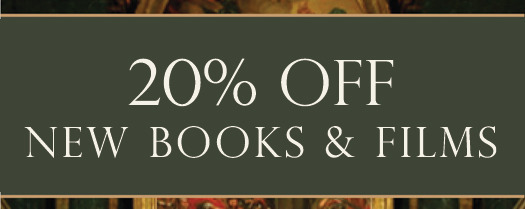
New Books and Films at 20% off!
Offer ends Tuesday, November 1st, 2011 at 12:00 midnight EST. These prices are available online only through Ignatius.com
Fall is upon us, that time of year when the temperature drops and there's nothing better than staying in, all bundled up, watching a great film or reading an inspiring book. Now available from Ignatius Press are two great movies. Learn about Blessed Duns Scotus, defender of the Immaculate Conception or go in-depth with priests & theologians about the Papacy and Confession in the new documentary: Gifts from God. Choose from these or any one of our news books, by authors such as Etienne Gilson, Louis Bouyer, Fr. Peter Cameron, and G.K. Chesterton and save 20%!
[image error]A Bitter Trial
Evelyn Waugh and John Carmel Cardinal Heenan on the Liturgical Changes
Dom Alcuin Reid
English author Evelyn Waugh, most famous for his novel Brideshead Revisited, became a Roman Catholic in 1930. For the last decade of his life, however, Waugh experienced the changes being made to the Church's liturgy to be nothing short of "a bitter trial". In John Cardinal Heenan, Waugh found a sympathetic pastor and somewhat of a kindred spirit.
This volume brings together the personal correspondence between Waugh and Heenan during the 1960s, a trying period for many faithful Catholics. This book paints a vivid picture of two prominent and loyal English Catholics who lamented the loss of Latin and the rupture of tradition that resulted from Vatican II. Also available as an e-book.
[image error]The Church of God
Body of Christ and Temple of the Holy Spirit
Fr. Louis Bouyer
How does the Church perceive herself? Fr. Louis Bouyer's The Church of God sets out to answer that question, in light of Tradition and theological reflection through the centuries, but especially by drawing on the teachings of the Second Vatican Council.
This book is a highly-readable, thorough synthesis of ecclesiology after the Council, presented by one of the greatest theologians of the 20th century.
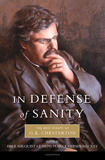 In Defense Of Sanity
In Defense Of Sanity
The Best Essays of G.K. Chesterton
G. K. Chesterton
G.K. Chesterton was a master essayist. But reading his essays is not just an exercise in studying a literary form at its finest, it is an encounter with timeless truths that jump off the page as fresh and powerful as the day they were written. The only problem with Chesterton's essays is that there are too many of them. Over five thousand!
So three of the world's leading authorities on Chesterton - Dale Ahlquist, Joseph Pearce, Aidan Mackey - have joined together to select the "best" Chesterton essays, a collection that will be appreciated by both the newcomer and the seasoned student of this great 20th century man of letters. Also available as an e-book.
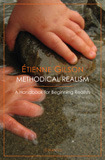 Methodical Realism
Methodical Realism
A Handbook for Beginning Realists
Etienne Gilson
This short book is a work of one of the 20th century's greatest philosophers and historians of philosophy, Étienne Gilson. The book's title, taken from the first chapter, may sound esoteric but it reflects a common-sense outlook on the world, applied in a "methodical" way.
That approach, known as realism, consists in emphasizing the fact that what is real precedes our concepts about it. In contrast to realism stands idealism, which refers to the philosophical outlook that begins with ideas and tries to move from them to things. Also available as an e-book.
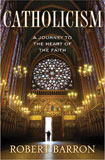 Catholicism
Catholicism
A Journey to the Heart of the Faith
Fr. Robert Barron
In this book Father Barron seeks to capture the body, heart and mind of the Catholic faith. Starting from the essential foundation of Jesus Christ's incarnation, life, and teaching, Father Barron moves through the defining elements of Catholicism-from sacraments, worship, and prayer, to Mary, the Apostles, and Saints, to grace, salvation, heaven, and hell-using his distinct and dynamic grasp of art, literature, architecture, personal stories, Scripture, theology, philosophy, and history to present the Church to the world.
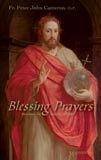 Blessing Prayers
Blessing Prayers
Devotions for Growing in Faith
Fr. Peter Cameron, O.P.
When you are looking for reassurance of God's love in your life, but can't find the words to fit your need, Blessing Prayers is an ideal guide.
Unplanned - Now available in Softcover!
The Dramatic True Story of a Former Planned Parenthood Leader's Eye-Opening Journey Across the Life Line
Abby Johnson
Unplanned is a heart stopping personal drama of life-and-death encounters, a courtroom battle, and spiritual transformation that speaks hope and compassion into the political controversy that surrounds this issue.
Praying with Saint Mark's Gospel
Daily Reflections on the Gospel of St. Mark
Fr. Peter Cameron, O.P.
Delve deeply into Mark's Gospel, which is read during the liturgical year 2011-2012. Edited by Magnificat's Fr. Peter Cameron, O.P., this book is a clear-cut and effective way to meditate daily on Saint Mark's Gospel.
DVDs
[image error]Blessed Duns Scotus
Defender of the Immaculate Conception
The inspiring true story of the holy Franciscan priest and theologian who won a famous debate against the Dominicans in the 13th century in which he defended Our Lady's great privilege of her Immaculate Conception, laying the groundwork for the Church to later define that as a dogma of the Catholic faith. Filmed in beautiful ancient monastery locations in Europe, Scotus is revealed as a humble and courageous apostle of the Faith against the oppressive anti-Catholic government in power. His public defense of the papacy as the head of the Church eventually got him thrown out of the country.
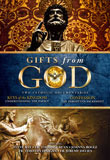 Gifts From God
Gifts From God
The Papacy and Confession
This new DVD has two excellent documentary films, one on the papacy titled Keys of the Kingdom: Understanding the Papacy, and the other titled Confession: The Forgotten Sacrament. Both films feature expert priests and theologians presenting in-depth commentary on these two sublime spiritual gifts from God to humanity through the Church, revealing the powerful spiritual significance of the papacy and confession for Catholics.
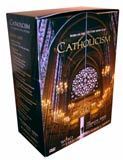 Catholicism
Catholicism
A Ten Part Series
For the first time, in breathtaking, high-definition cinematography, the beauty, goodness and truth of the Catholic Faith are illustrated in a rich, multimedia experience. Journey with acclaimed author, speaker and theologian Fr. Robert Barron to more than 50 locations throughout 15 countries. Be illuminated by the spiritual and artistic treasures of this global culture that claims more than one billion of the earth's people.
Also available:
Catholicism: Study Guide and Workbook
This study guide and workbook takes each student of Catholicism deeper into the Faith and into the film series. It is appropriate for individual or group study. The Catholicism Study Guide and Workbook contains ten lessons, which correspond to each episode of Fr. Barron's DVD series.
For Additional Sale Items Click HERE!
"We are slowly losing our sense of religious liberty in America. ..."
... There is much evidence to suggest that our society no longer values the public role of religion or recognizes the importance of religious freedom as a basic right. As scholars like Harvard's Mary Ann Glendon and Michael Sandel have observed, our courts and government agencies increasingly treat the right to hold and express religious beliefs as only one of many private lifestyle options. And, they observe, this right is often "trumped" in the face of challenges from competing rights or interests deemed to be more important.
These are among the reasons the U.S. Catholic bishops recently established a new Ad Hoc Committee for Religious Liberty. My brother bishops and I are deeply concerned that believers' liberties—and the Church's freedom to carry out her mission—are threatened today, as they never have been before in our country's history.
Catholics have always believed that we serve our country best as citizens when we are trying to be totally faithful to the teachings of Jesus Christ and his Church. And since before the founding of the American Republic, Catholics—individually and institutionally—have worked with government agencies at all levels to provide vital social services, education, and health care.
But lately, this is becoming harder and harder for us to do.
Read the rest of the essay, "Defending Our First Freedom", by Archbishop José H. Gomez, on the First Things site.
Jesus Christ: Divine Troubler, Divine Brother
My "Opening the Word" column for this Sunday, October 30th, is available to one and all on OSV.com. Here's the opening:
"A prophet," wrote Archbishop Fulton Sheen, "is a Divine Troubler, not a political troubler. He is always a disturber of worldly peace; he makes listeners feel uneasy." This explanation of the prophet's work — which is challenging for both himself and his listeners — fits perfectly with today's readings, especially the first, from the prophet Malachi, and the last, from the Gospel of Matthew.
Malachi condemns the spiritual laxity and corruption, including among the priests, who offered impure sacrifices and failed to show proper reverence for God (Mal 1:6-14a). In relaying this strong indictment, he points to the true source and proper focus of priestly service: "Have we not all the one father? Has not the one God created us?"
The same dynamic is at the heart of today's Gospel. The tensions between Jesus and the religious leaders had escalated to the point that direct confrontation could no longer be avoided. In fact, so strong are the words of Jesus, they form a prelude of sorts to a series of seven "woes," or covenantal curses (Mt 23:13-36), which contrast directly with the series of blessings, the "beatitudes," uttered by Jesus in the Sermon on the Mount (Mt 5:1-11).
As with the priests of Malachi's time, the central issues pinpointed by Jesus were corruption, arrogance, spiritual laxity, injustice, lack of reverence, and hypocrisy. He deliberately pointed out the truthfulness of the Pharisee's teachings, which only further heightened the severity of their sins, for despite knowing and teaching the Law they did not practice what they preached: "All their works are performed to be seen." Instead of humility and holiness, they pursued praise and prestige.
Read the rest of the column on the Our Sunday Visitor website.
On Going the Way of World Government

On Going the Way of World Government | Mark Brumley | Catholic World Report
Abstract principles and ideal scenarios don't grapple with the real world.
World government. Thirty years ago I read Mortimer Adler's How to Think About War and Peace and was convinced. If world peace is ever going to be achieved, Adler argued, there would have to be something like a world federation of democratic states. I found concurrence in statements by Popes John XXIII, Paul VI, and John Paul II, as well as the Second Vatican Council. To this day, I acknowledge world government as the ideal. If, in order for autonomous individuals consistently to achieve their common good, some form of government is necessary, then in order for autonomous governments consistently to achieve their common good, some form of world government is necessary.
I say world government is the ideal. Whether the ideal is practicable is another matter. Suppose it isn't. Suppose in the real world human beings are such that, while in principle they could work together internationally to achieve peace, in practice they simply won't acquire sufficient moral virtue to will as they ought for their own real good and the common good of the human family? Suppose they simply won't ever attain the practical wisdom and moral virtue to organize six billion plus people into one political/economic community of mutually respecting nations, all collaborating for the global common good? Surely, that possibility shouldn't take a Catholic by surprise. A whole strand of Augustinian political thinking is skeptical about the long-term viability of democratic government on a national scale, much less on a global one. Indeed, one may well argue that given man's sinful proclivities, a peaceful one-world democratic community won't be seen this side of the Eschaton.
Even Adler, ever the optimist about the possibilities of democratic government, insisted that it would take 500 years to achieve the goal of a moderately peaceful, democratic world federation, assuming human beings didn't manage to destroy themselves in the meantime. Toward the end of his life, he reduced that to 300 years, arguing it had to happen more quickly if it was to happen at all.
In any case, as Adler and many other political philosophers make clear, establishing a truly democratic world government is no mean feat, requiring transnational agreement about fundamental ethical questions and human rights, not to mention a minimum of universal education, moral virtue, and economic stability. We are, the optimistic Adler insisted, distant from anything like a global culture, with commonly shared ethical principles. To which I say, if commonly shared ethical and democratic values are necessary for democracy to thrive in a nation- state, what does that mean for the prospects of a world democratic state, in the world as it is today and is likely to be for the foreseeable future?
As things stand today, achieving a world democratic federation in half a millennium looks like a best-case scenario.
New: "The Church of God: Body of Christ and Temple of the Holy Spirit" by Fr. Louis Bouyer
Now available from Ignatius Press, one of the finest works of ecclesiology written in the 20th century: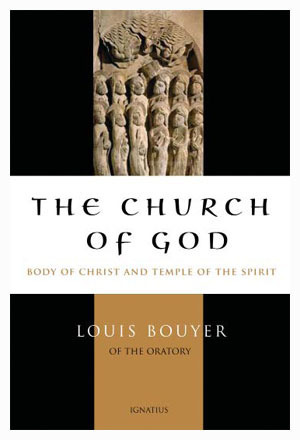 The Church of God: Body of Christ and Temple of the Holy Spirit
The Church of God: Body of Christ and Temple of the Holy Spirit
by Fr. Louis Bouyer
How does the Church perceive herself?
Fr. Louis Bouyer's The Church of God sets out to answer that question, in light of Tradition and theological reflection through the centuries, but especially by drawing on the teachings of the Second Vatican Council. This book is a highly-readable, thorough synthesis of ecclesiology after the Council, presented by one of the greatest theologians of the 20th century.
Bouyer, himself a former Lutheran minister, also explores Reformation views of the Church, as well as the Catholic Church's deepened understanding of her distinctive identity and her imperfect but real communion with the Orthodox churches and Protestant ecclesial communities. It offers a foundation for sound ecumenical discussion about the nature of the Church.
The Church of God is a major contribution to the ecclesiology of communion fostered by the Second Vatican Council and continued by Pope Paul VI, but especially by John Paul II and Benedict XVI. Indeed, the book reflects the "hermeneutic of reform" Pope Benedict XVI insists should guide the interpretation of Vatican II.
"Bouyer begins by sketching the patristic doctrine of the Church and the seeming loss of this doctrine in the medieval, Reformation, and Baroque periods due to increasingly juridical conceptions. The heart of the book, in which it receives its distinctive Bouyerian stamp, is his lengthy biblical and liturgical exploration of the Church, culminating in his reflections on Mary's motherhood. This book sheds important light on Lumen Gentium and has an enduring place alongside the works of Bouyer's ecumenical peers and mentors Cullmann, Bulgakov, de Lubac, and Congar."
- Matthew Levering, Ph.D., Professor of Theology, University of Dayton
Father Louis Bouyer (1913-2004) was one of the most respected theologians of the 20th century. Born in France, Bouyer was a Lutheran minister who converted to Catholicism. He was a member of the French Oratory, authored many major theological works, and his ideas contributed greatly to the Second Vatican Council. His other works include The Word, Church and Sacrament in Protestantism and Catholicism and Newman: An Intellectual & Spiritual Biography of John Henry Newman.
Carl E. Olson's Blog
- Carl E. Olson's profile
- 20 followers



